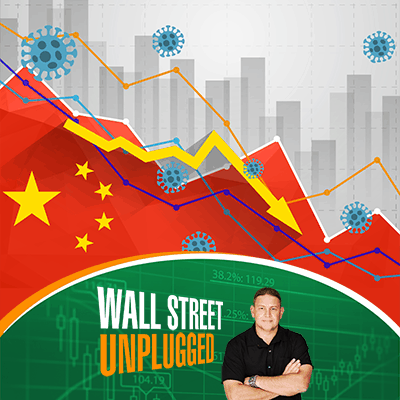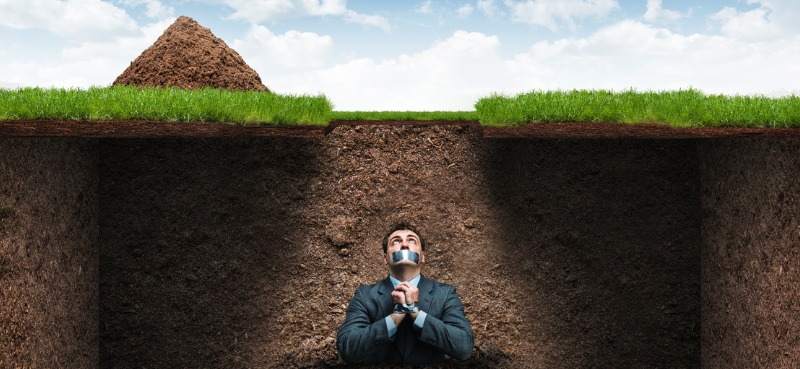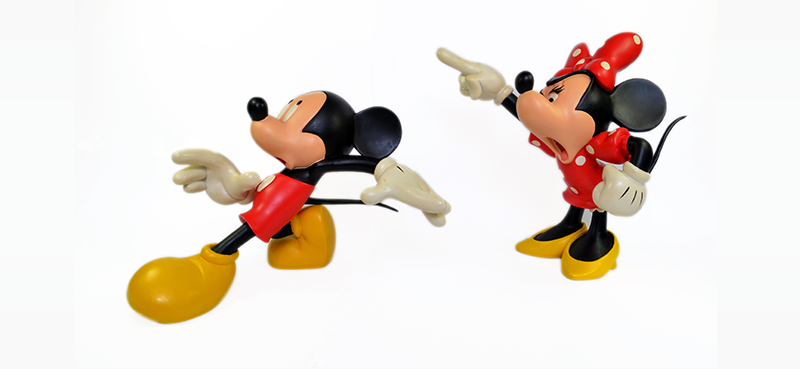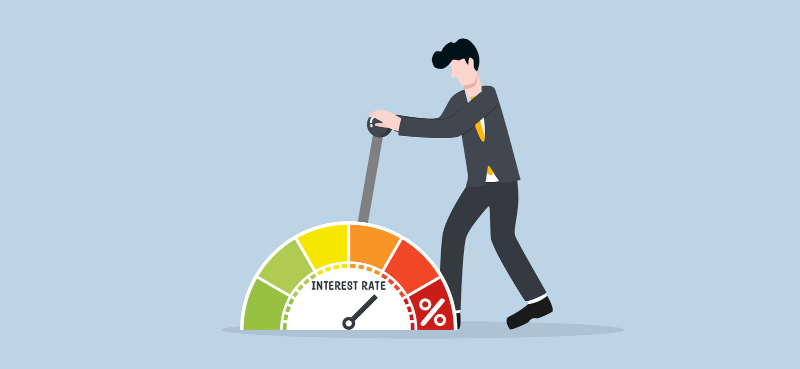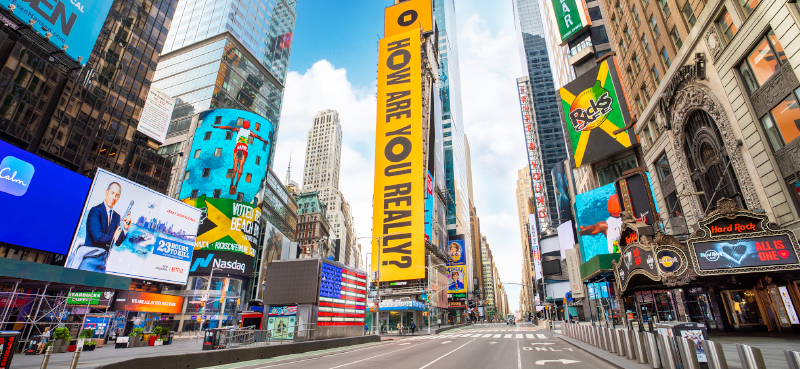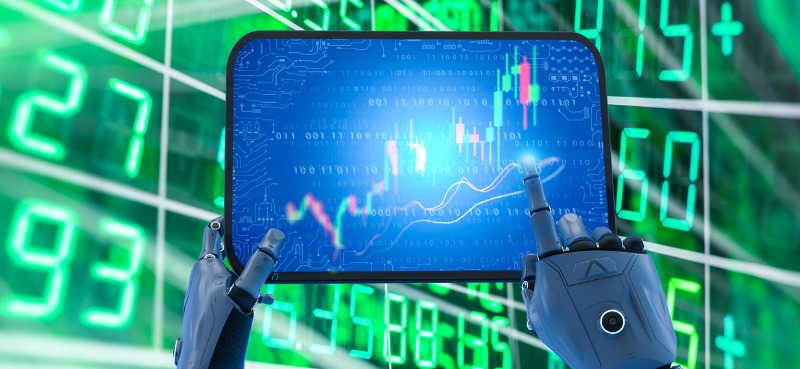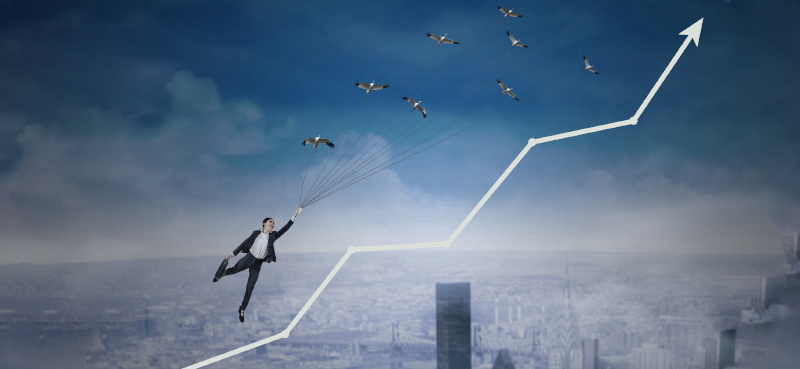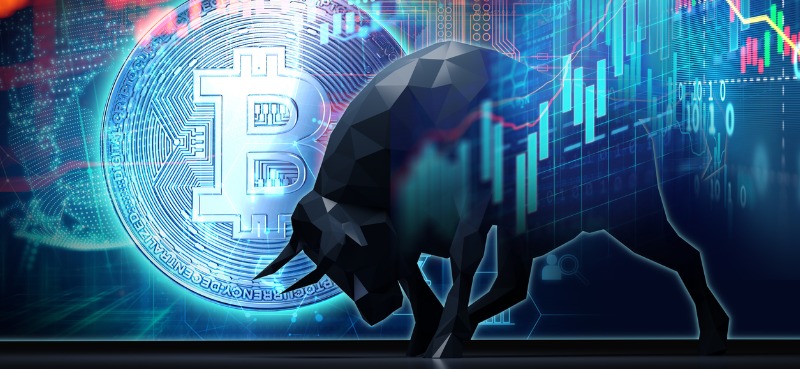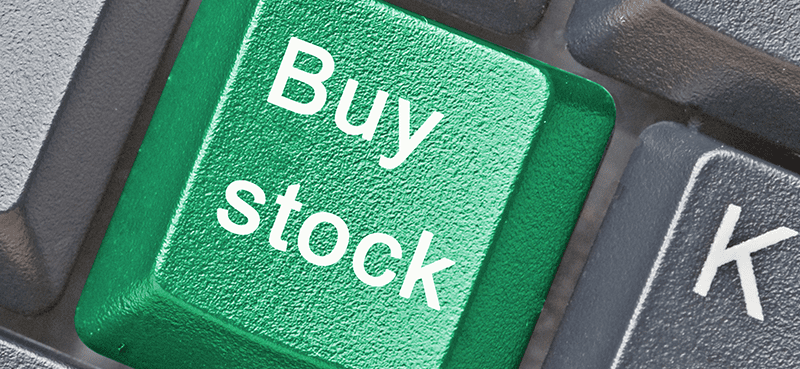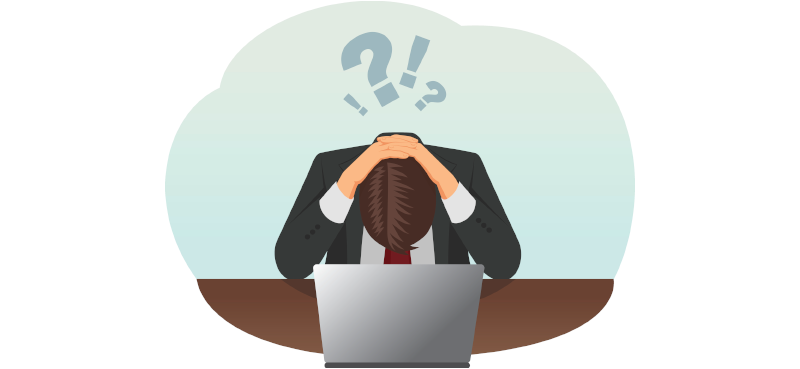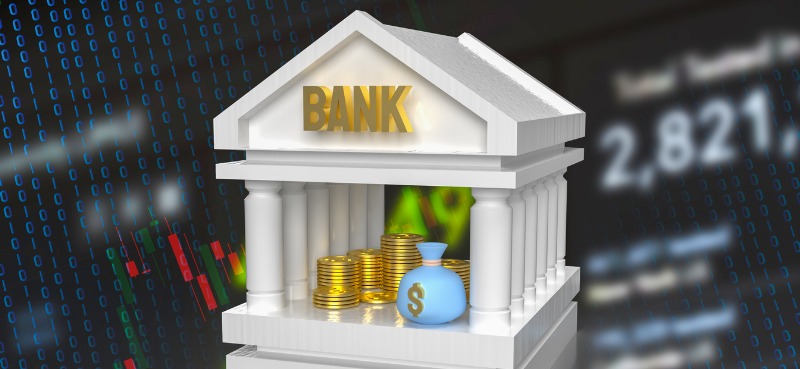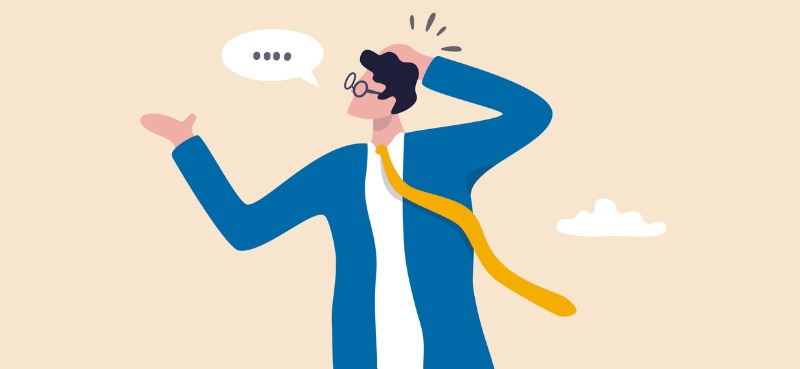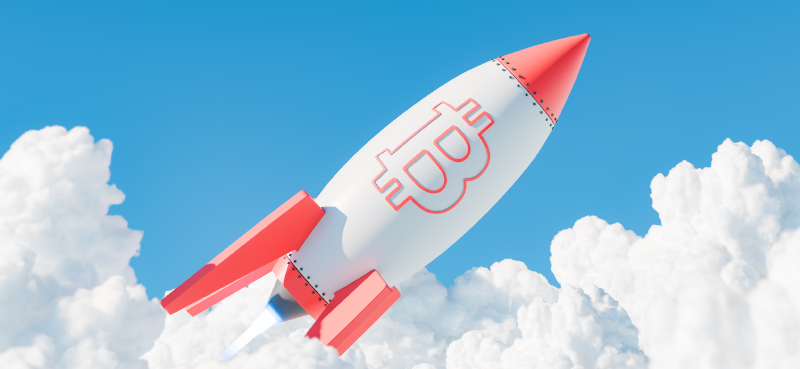Today’s show is a little different.
I don’t have a guest this week. Instead, I want to bring your attention to a very serious issue…
You see, over the last several weeks, I’ve been heavily researching the new coronavirus strain, COVID-19… and its potential impact on the global economy.
It turns out, the facts and figures you’re hearing in the news may be bogus. The truth is that this disaster could have much further-reaching consequences than what anyone is saying.
As the COVID-19 outbreak continues to drag out, here’s everything you need to know about protecting your portfolio.
Wall Street Unplugged | 708
It’s time to panic about the coronavirus… and protect your portfolio
Announcer: Wall Street Unplugged looks beyond the regular headlines heard on mainstream financial media to bring you unscripted interviews and breaking commentary direct from Wall Street right to you on Main Street.
Frank Curzio: How’s it going out there? It’s February 12th. I’m Frank Curzio, host of the Wall Street Unplugged podcast, where I break down the headlines and tell you what’s really moving these markets. Today’s going to be a very special podcast. No, I’m not going to have any rants that piss off a small percent of my audience. And I’m not going to have a guest today. I’m not going to have a guest because the research that I did on a topic that you’re going to hear in a minute just consumed my whole entire life pretty much the past two to three weeks. One of those things where you find stuff, and you just keep digging and digging and digging.
Frank Curzio: And what I found is really crazy. So it’s all me today. You’re stuck listening just to me, no guests. And I hope you stay tuned for the whole podcast because it may be one of the most important podcasts that you’ll ever hear from me. And I’m not building this up, you’re going to see in a second. Now if you’ve been following my work over the years, you know I’m quick to call bullshit on most crazy market calls. I told you to ignore the crazy, insane permabears for how many years calling for a 50% plus crash every single year, at least for I would say the past six, seven years maybe. I said to stay long stocks through Brexit and numerous government shutdowns we’ve had over the past few years. I told you ignore every negative story about the US and China trade war, that this is a China problem, not a US problem. Stay long stocks. I got a lot of criticism for that. I’m glad, hopefully, that you guys listen.
Frank Curzio: And I’m not highlighting these calls to be arrogant. You guys know I cover my losers. I don’t need a confidence boost because I’m insecure. I need to talk positive about myself all the time, no, it’s not about that. These calls that I made in the past, I spent tons of hours researching, analyzed hundreds of reports, talked to industry experts, people that are in my Rolodex that I built up over 25 years. Write up my research, just wait, you could draw your own conclusions instead of listening to the crazy talking heads on TV that have an agenda. But at the end of the day, my research isn’t based on stubbornness or emotions, so sometimes that offends people. But it is based on data and a lot of hard work.
Frank Curzio: And right now my research shows that the coronavirus risk is nowhere near being priced into this market. And if conditions worsen, we could be in for a lot of hurt, and I’m not just talking about China. I’m talking about the global markets. I know what you’re thinking. I just put on CBC today. Wynn, Las Vegas Sands had the most exposure to coronavirus. They got upgraded because the numbers are coming down. Ignore the talking heads. When I look at the coronavirus, it’s very, very, very serious. And the numbers I’m going to share with you today, it’s going to be hard to disagree, numbers that you’re not hearing anyplace else.
Frank Curzio: And for the thing to be dying down and CNBC to do a special on this yesterday, which I didn’t see yet, I didn’t need to see because I know more than what they’re talking about. That’s how much I research this thing, I went through tons and tons and tons of research reports, talked to so many different people. Again, just so engulfed with this that when it came Tuesday, I forgot that my podcast was Wednesday. And I love getting lost in my research like that. Now if you’re on another planet, let me just break down the coronavirus. It happened around the long got sound pretty much in late December. Doctors identified around 40 cases around the Wuhan area. They noticed mostly infected people worked at a seafood wholesale market in Wuhan.
Frank Curzio: So authorities immediately shut that down, that was around January 1st, just to contain they called it a mystery illness. But one week later, doctors confirmed the existence of a new virus, one that they’d never seen before. It’s actually a new strain from a family known as corona viruses. So this isn’t really a coined coronavirus. It’s really called COVID-19. But the coronavirus was also SARS, and that’s what everyone’s comparing this to. So SARS appeared in 2003, that was a coronavirus, in the family of coronaviruses. There was an outbreak in China. China really got that wrong. I’ll go over that in a minute. If you’re looking at MERS, if you heard of, Middle East Respiratory Syndrome. That popped up Middle East, that was in Saudi Arabia. That was in 2012. These are all coronaviruses.
Frank Curzio: Now at first, the symptoms are pretty similar to a cold. Most patients get a fever, runny nose, dry cough, a little stuffy. About 15%, these are the worst cases, they’ll develop into severe pneumonia. And right now there’s a 2% fatality rate. So if you’re looking at this virus, just like the flu, it can’t be treated with antibiotics. It’s also very highly contagious as you probably know. I mean, it’s spreading like crazy. But it spreads through the air when an infected person either coughs, sneezes, through simple handshake. And to protect yourself, experts are saying, “Hey, wear a mask. Wash your hands often.” Masks do not work, guys. If you’re a doctor and you have your hands covered, it’s different. But these people are going to go back to work with masks on, and they don’t have gloves on. They’re touching different things.
Frank Curzio: When you take the mask off, you almost touch your mouth. They don’t help. I mean, if you talk to the best doctors in infectious diseases, they’re going to tell you masks don’t help. They really don’t for the majority of people. But yet, that’s okay. Everyone’s going to wear a mask and they’re going to say, “Okay. You can go back to work.” And they’re letting people slightly go back to work a little bit. I’ll get to that in a minute.
Frank Curzio: Now to compare the SARS outbreak, which was huge, a huge news story, huge. Right? Caused massive panic 2003, spread to 17 countries, infected over 8,000 people over a nine month period. Meanwhile, this coronavirus infected the same number of people in less than two months. And it’s now spread to all of China’s 31 provinces. And we know it’s not just a China problem. Cases have been reported over two dozen other countries. I won’t name them. It’s not a big deal. Most of those cases are very small. About 98% of the cases are still in China. But there is a chance for this to spread.
Frank Curzio: Now what has China done differently this time compared to SARS? Well, SARS, they didn’t really isolate people. Right? They didn’t have containment, a little bit of containment, not as much, very, very small. But we saw over the past couple of weeks that the number of confirmed cases exploded higher. So we’re talking about around January 20th, and it’s February 12th today, there was a couple hundred confirmed cases. By February 10th, two days ago, that number soared over 40,000. Now I’m not worried about the coronavirus spreading much outside of China. I mean, early estimates indicate that the virus reproduction rate is around 22.5. That means for every one person infected, about another two to two and a half people will end up catching the virus, so that’s an important measure. Not that you have to write it down, but that’s how they measure how contagious a disease is. And they want that number to fall below one before they say, “We have control of it,” which is not even close.
Frank Curzio: So China’s response was, hey, you know what, let’s completely cordon off the infected regions. We’ll isolate everybody from the rest of the world. This includes closing factories, stores and streets in more than 20 of those 31 provinces, which represent more than 75% of the country’s global output. They closed everything. That’s what they decided. Mandated it. The economic consequences of this decision are significant. They’re being significantly understated. And it’s not just for China because I said when it comes to the coronavirus, there’s two different things here, guys, that you have to understand. I’m not sounding an alarm like you have to stay inside. This is kind of like the flu, but the flu, how many, 20, 30, 40 million people get it every single year. Depends on what estimate you look at. I did a lot of research on that. And nobody’s closing anything because of it.
Frank Curzio: But they decided to close everything and isolate everybody. Now extreme times call for extreme measures I guess because on the week of February 3rd, thousands, thousands of companies announce they’re going to temporarily suspend operations, which include corporate offices, manufacturing facilities, retail stores, all across China. Meantime, that’s what they said, but China was mandating the government. Right? So most were scheduled to reopen on February 9th, but the date has been pushed as the coronavirus is no longer showing signs of slowing. Now they’re saying people at Foxconn, I’ll get to that in a minute, are going back. A few of them are going back to work, a few, but most of them have not opened up as of right now.
Frank Curzio: So people say, “Well, it’s slowing a little bit,” and I’m going to tell you why it’s slowing. I’ll tell you why right now. I mean, China’s great. One is, don’t believe those numbers. But the biggest reason is China decided to classify these people, so if you’re infected and not showing symptoms, you’re not included in the infected. Think about that for a minute. So I could test positive for the coronavirus, and maybe I don’t show symptoms. Maybe my immune system’s just okay against this disease, whatever it is. But I could transmit it to anybody. But yeah, I’m not part of that whatever it is now, 43,000, 45,000, whatever that number is. They don’t include that. It’s very interesting.
Frank Curzio: So getting back to the stores, Apple said it’s going to close all 42 of its China stores. They have two major plants in Foxconn, one in Shenzhen. I know in Shenzhou. Those are the world’s biggest iPhone production bases, shut down. McDonald’s closed 300 plus stores. Starbucks closed over 2,000 of its stores. Yum China closed over 3,000 of its stores. Nike closed half its stores. H&M closed 97 stores. Ikea closed all of its 30 mega stores. Levis, who just went all in on China, opened up a massive facility, 7,000 square feet, shut down. You had Wynn, Las Vegas Sands and MGM, Melco resorts and entertainment. They closed their casinos in Macau. There’s 41 in total in Macau. Told I’ve been digging, doing all the numbers research on this.
Frank Curzio: So Macau shut down. If you’re not familiar with Macau, I’ve been there. Largest gaming center in the world, generating more than twice the sales than Las Vegas. That’s how big Macau is. Only place in China you can gamble. Manufacturing giants, you have Siemens, Lenovo, Yahweh, Honda, Toyota, Renault, Tesla, General Motors, Erickson, LG, all closing their stores. Most major airlines also suspended flights to China. Even Disney, Disney closed its theme parks in Shanghai and Hong Kong. To put that in perspective, yes, I did research on this, Disney closed its US theme parks only seven times in its history since 1971.
Frank Curzio: Every closure, almost every closure was due to weather. It was for about a day. The lone exception being the days following 9/11. Yet, they closed both those parks. Dozens of cities in China are now quarantined. And buses, trains, flights and ferries, they’re suspended. The streets are empty. Even today, they’re empty. No matter what they’re telling, they’re empty. Whatever they’re telling you where, oh, it’s slowing. It’s not fewer people, it’s not going as fast. The infection rate’s coming down. Again, don’t believe it. But if you’re in China, different area, quarantine, nobody can travel to those provinces and it’s close to impossible to leave.
Frank Curzio: So this amounts to 400 million people on lockdown. And most of the cities have populations greater than New York City. Today, they look like ghost towns. Think about that for a minute. 400 million people, that’s more than our population in the United States. Imagine that you were quarantined, it’s about a week, a little bit over a week now, that you can’t leave your house. I mean, think about what’s going to happen to the economy. Nobody’s going to work, much less electricity is being used. You’re not using fuel because you’re not driving anyplace. You’re not doing anything. Sit in your house and we’ll have a couple companies deliver food for you, and maybe we’ll keep a couple stores open, which a couple food stores, they did keep open.
Frank Curzio: But 400 million people are on lockdown, 400 million. This is the largest quarantine in mankind history recorded. China almost completely isolated itself from the rest of the world. And I guess extreme times call for extreme measures. But just how extreme is the outbreak? Because as of February 10th, the Chinese government said 40,000 people are infected. And 900 of those cases were fatal. It’s a little bit higher now I know. Just using those February 10th numbers two days ago. Now if you believe those numbers, which the whole market does, we’re at an all-time high. If you really truly believe those numbers, the infection rate in China amounts to .0028% of China’s entire population. When you look at the fatality rate, more people in China die from being struck by lightning every year compared to how many people die from this virus. Yes, I looked that up.
Frank Curzio: So that leads us to the $64,000 question. If only 0.0028% of the people living in China are infected, then why mandate tons of store closures, station military police to block train stations, and keep over 400 million people on lockdown? You know why, because the government’s lying to you. And I’m not the only one that thinks this. The Lancet published a model suggesting, and this is from January 31st, at least 75,000 people are infected with the coronavirus in Wuhan alone, more than 10 times higher than the cases that were currently reported. Lancet is not some sleazy tabloid. It’s one of the oldest, most prestigious medical journals in the world.
Frank Curzio: On February 5th, Tencent, one of China’s largest companies, accidentally published a report with up-to-date statistics. They said that 154,000 people were infected. And this is more shocking, 24,589 people declared dead. That same day, the Chinese government said, “No, no. There’s only 20,000 people infected and only 565 people have died.” 565, the government’s reporting. Tencent put it on their website, 24,589 people were dead. Compared again, just 565. So Tencent’s death total was 40 times greater than the numbers being reported by China’s government. Of course, after a couple of hours, it was removed.
Frank Curzio: But guys, this isn’t some crazy conspiracy theory. I mean, Tencent as market cap close to 500 billion. Put that in perspective, it put it in the top 10 companies in America right now. It owns WeChat, the messaging service, over a billion users in China. And it’s the largest gaming platform and also the music service company in the world. They own those two industries. We’re talking about, I mean, the reach to their consumers, there’s not a better company. I mean, these guys have more reach than Amazon does in America. I mean, if you’re looking at Tencent, they have more access to Chinese consumers than any other company in the world. On February 6th, Professor Neil Ferguson, director of the MRC Center for Global Infectious Disease Analysis, that’s at Imperial College in London. He claimed that 50,000 new cases of coronavirus are emerging in China every day, 50,000 a day. More than 15 times higher than the 3,000 cases the government is reporting.
Frank Curzio: He even says, “The true scale of coronavirus isn’t being reported by Chinese officials.” Neil Ferguson is a big shot. His job is to determine the spread of infectious diseases using mathematical models and strategies. That’s what he’s done for his whole entire career. There’s no bias there. He’s not trying to get attention. As I mentioned earlier, the virus, based on the numbers I look at, showing no signs of slowing. And they said this about three, four days ago, that hey, it slowed. Then all of a sudden, cases went back up again. It’s getting to the point where that line has become linear. It’s moving higher in a straight line. But for some reason, everyone’s like, “Oh, the infections are slowing. We’re okay.”
Frank Curzio: But based on this data, the coronavirus is nowhere close to being contained. Yet, the markets, including China equities, rebounded sharply as if the worst is behind us. And I have to tell you, this disconnect is not going to last long. And when the tide turns, a lot of investors are going to be crushed and be caught on the wrong side of the fence. I’m not one to sound the alarm. I haven’t been bearish. I’ve been cautious at several times. That was before China or Trump decided to issue the tax reforms. I was like, “Well, the market seems lots… Then the tax reforms came out. I said, “That puts a whole other level on being bullish.” Been bullish for a very long time overall if you read my newsletters. This will be the first time in a very, very, very long time, probably in over 10 years when I’m looking at the market and it’s not making sense.
Frank Curzio: I’m going to break down even further because you’re probably like, “Oh, the fence. I don’t know, Frank.” Listen. Just keep listening because you have most investment firms, they’re downplaying this risk. Goldman Sachs pointed out that during the most recent disease epidemics, growth rates weakened and then rebounded sharply in the following quarter. And they used everything, the swine flu, MERS, SARS. Compare it to everything. JP Morgan made the same point to investors. Hey, buy China equities on a pullback. Right? And what happened now? Well, if you’re looking at the markets today, there’s news saying the coronavirus slows, and you had Wynn, just got upgraded from Bank of America. That’s traded about 10% off, it’s maybe two-week high. Las Vegas Sands, these are the companies that have the most exposure to China. Las Vegas Sands. Las Vegas and Wynn have huge operations in Macau, that’s where they generate most of their revenue. They got upgraded. They’re close to a 12-year high.
Frank Curzio: UBS upgraded Micron, who has a ton of exposure. They upgraded Micron. It says, “The time has come for material out performance.” That’s what UBS says. By the way, the stock’s up 41% over the past 12 months. It’s at a 20 year high. Now’s the time. No. 12 months from now, or 12 months before this was the time. That’s when you should upgrade. Now’s the time, now. That’s like me putting out a report, now’s the time Amazon’s going to take off. Give me a break. Interesting. Everything’s okay.
Frank Curzio: Now I study sell slide analysis. So these guys are really good. They actually had some really good statistics that I read. I read almost every single report from every single brokerage firm. And when you’re looking at the data, that makes sense. You know why? Because sell side firms use history as a guide, like we’re always told. And this is going to fly in the face of everybody, all the greatest investors, and books you read. It’s going to fly right in the face because everybody says, “History repeats itself.” It doesn’t all the time. Whenever people say all the time, always, never, run. Okay.
Frank Curzio: I mean, if that’s the case, that’s why none of these investment banks saw the housing crisis coming in 2007. You know why? After all, history shows us that housing prices always move higher. Yet, they almost destroyed the entire financial system. Yeah, not discounting the importance of historical analysis. I use it, but it’s not the end all. Okay, it’s this way, or no way. But comparing the coronavirus to past disease epidemics is absolutely ludicrous. It’s like comparing today’s times, and this is why even some of the great analysis have got it wrong, because they’re comparing today to other times. And you can’t, you can’t compare when interest rates are zero, or close to zero, a little bit above 1%. You can’t with interest rates so low, are feral monetary policy, not just here, all over the world, with these buy backs coming. It’s a different market today than we’ve ever seen.
Frank Curzio: And people are comparing it saying, “Well, the last time this happened,” so many great analysts, the last time … This isn’t the last time. We’re in a market that’s never like this. It’s the longest bull market ever. How many people told us it was going to end three years, four years, five years ago, six years ago, seven years ago? Still going. So now what are they doing? They’re comparing the outbreak of the coronavirus to SARS. Let’s break it down a little bit because SARS took place over a nine months span between 2002, 2003, during which 8,000 people were infected. Now the coronavirus, COVID-19, I’ll call it the coronavirus because it sounds better than me just shouting out a couple letters and a couple numbers. It’s less than three months old, already has more than 40,000 Chinese citizens that are infected if you believe the government. I think it’s much, much more higher than that.
Frank Curzio: Only eight provinces in China were impacted during the SARS outbreak. And there was minor containment measures taken to reduce the spread of disease. Today, the coronavirus has spread to all 31 provinces in China, and over 400 million people are on lockdown. Before SARS hit in 2020, Chinese residents took 16 million trips outside the country. That’s a lot. And this is SARS. This is back in 2002. In 2018, because those are the latest statistics available, that number increased tenfold with 162 million residents in China traveling outside the country. Think about that. It could result in the virus spreading much quicker. But look at China’s economy today.
Frank Curzio: In 2003, China was the sixth largest economy in the world, accounted for 4% of global gross domestic product, GDP. Today, China is the second largest economy in the world, which you know. It accounts for close to 17% of the world’s GDP, and it’s completely shut off right now. But everybody’s upgrading stocks. Everybody’s acting … Guys, there’s something you have to understand. I mean, 17% of the world’s production is completely suspended right now. And we’re not near containment. We’re not. We’re not near containment. I mean, there’s still hold up … Carnival ships, they’re just docking them. They’re not letting them out of the country. We’re not even close.
Frank Curzio: This isn’t like a light switch. You don’t just shut it off, turn it on, okay. Everything’s fine. No. SARS, which was 8,000 people, took nine months. You know how long it’s going to take for China to get back to full production? You think it’s going to take less than nine months? You’re crazy. Meanwhile, just one week after the mandated shutdown, China right now, they’re preparing to let citizens return to work. Pretty insane considering the coronavirus takes up to two weeks to reveal symptoms. So I’m not sounding an alarm that you have to worry about getting this virus. What I’m sounding alarm on is there’s a big difference between the health part and the economic part. And people are not getting the economic part. They just think, “Oh, this is shut.” Nobody’s working. Nobody’s gone back to work.
Frank Curzio: And what’s going to happen? You’re letting these people go back to work, and a lot of them are going to infect other people, which is fine. It’s kind of like the flu. But they’re going to stay home. And you have to realize the sentiment behind this thing. You’re scaring the shit out of people. You have to stay home. You’re on lockdown. You’re on the cruise ship, you’re locked in your room for a week. People are deathly afraid of getting this, even though SARS had a 10% fatality rate, this only has a 2%. But you’re making it that if you get this, now people are scared. You think they’re going to run back to work? And by the way, most people in China travel hundreds of miles to work. I’ve been there. You see these massive factories that hold 500, thousands of people. And they ship in, they stay there for three months, they have these living quarters, and they go back home to inland China.
Frank Curzio: And a lot of these people travel to work. But everything’s fine. You don’t have to worry about it. Everything’s fine. Everything’s really cool. Now when I look at the numbers, China’s economy grew by 6.1% 2019. That was the slowest pace in 30 years. Now economists are calling for just 5.5% growth in 2020. That ain’t happening. And I’m not the only one that thinks so. I mean, you call poll a lot of different economists, even JP Morgan lowered their estimates recently. They love lowering estimates and upgrading price targets and stuff like that. They pray for that. Now Ed Hyman, who is the chairman, head of economic research team of Evercore. Evercore, guys, I look, I read research reports from the south side all the time, Evercore to me is the best in the industry.
Frank Curzio: So Ed Hyman has been ranked number one by Institution Investor Poll of Investors for Economics 39 out of the past 44 years. He’s predicting China is going to see zero economic growth in the first quarter as a result of the coronavirus, zero. That’s no place. I hope he’s wrong. But if that’s not enough to make you nervous about being 100% long on stocks right now, especially in the US, then maybe this stat will kind of ease that. China, and this is according to the International Monetary Fund, China accounted for 39.2% of the global economic growth in 2019. That’s an incredible number. I didn’t know that until I started researching it. Think about that. We’re in a full blown growth market in the US. Companies are trading from a valuation perspective, all-time highs. And that’s fine. Pedal to the metal, favorable monetary policy. Maybe more tax reform is coming. I get it. I understand it.
Frank Curzio: But that’s assuming that everything is fine. Now let’s put that number in perspective. Forget about that 39% is China. Think about if it was a company. Imagine a supplier generated 39% of its sales from Apple. Then imagine Apple decided not to use this supplier for say, six to nine months. What do you think would happen to that stock? I know. I’ve seen it happen. A lot of these stocks fall 20%, 30%. You know what, you see that kind of reaction all the time when a growth company lose a big customer, or if a growth company shows signs of slowing. Maybe they get away with it with a quarter. But if it’s two quarters, whoa.
Frank Curzio: This happened to Microsoft. Microsoft, Apple used to trade at 50, 60, 70 times earnings. And then they came down to 12 times earnings because growth slowed. Now growth picked up again. Now those multiples are a lot higher, up to the 20s. You’re only going to have a multiple that’s higher than the market at 17 X if you’re growing. You should, if not, then that’s a problem. That’s one of the reasons why I don’t like Disney. Disney’s got 24 times PE and they’re not even going to go earnings year over year. But everybody loves them. If they have a two week high, nobody cares. This is different. You’re taking the world’s growth component out of the market right now. And you’re not too sure when it’s going to come back. And people are just anticipating. You’re comparing this to SARS, which is insane.
Frank Curzio: China was 4% of the economy back then. It’s 17% now. This is a major, major disconnect going on. And you know what, a lot of stocks in your portfolio could get hurt in 2020. That’s why this is an important podcast because you should be sitting on pretty nice profits. My newsletters, or whoever you listen, hopefully, hopefully no one’s just telling you to buy gold and go 100% in gold for the last seven, eight years. I do know people like that. But if you’re in US stocks, you should be okay. Up 30% last year. I’ve been going up constantly. Last year, a little bit of a downturn at the end of the year, but 2019 was great. But you’re looking at the stock market, most stocks with exposure to China fell sharply from January 20 through February 3rd. Everybody’s worried.
Frank Curzio: This is shortly after the government forced business and factories to temporarily shut down. But most of these names have rebounded sharply over the past week. Those fears of the coronavirus spreading have eased. I mean, very surprising considering some of the large companies S&P 500 warned on their quarters. They warned. I listened to these. They warned and said, “Listen, we may be impacted.” Even Microsoft, Apple, widened their gap. Ford, which we saw, I mean, a lot of companies that we really don’t know yet. We don’t know. But to help you guys out, here’s a quick breakdown of the S&P 500 sectors with the biggest revenue exposure to China. Be careful because I’m saying revenue. That’s going to change in a little bit.
Frank Curzio: So it looks at revenue. You’re looking at information technology, that’s 10%. Just throw that with most semiconductors, most large cap technology stocks. You have communication service, 6.1%; healthcare, 6.8%. materials, 6.6%. Those are the biggest. So if you want no exposure, it’s utilities, it’s energy, real estate, you know, reads in America, financials here too. They have not as much exposure. They do have exposure, but not as much. Most of them are US based. Consumer staples is right in the middle. But you’re looking at information technology, which is again, most large caps technology stocks, the semiconductors. I mean, the amount of money, it’s like 50% of all the chips within the semiconductor market.
Frank Curzio: And I put a number on it. It was 450 billion or something like that, some way or another, go through China, whether they’re produced there, whether they’re shipped through there, whether they’re shipped … I mean, that’s how much China influences our technology market, how much influence they have. Now if you’re looking for safe havens, utilities, energy, real estate, financials. But when I look at those stats, it’s misleading. So when I see an information technology, that sector has around 10% of revenue exposed to China. I mean, if you look at individual names, Wynn Resorts, close to 80%. Qualcomm, 70%. Las Vegas Sands, Micron, amazing, these companies are being upgraded. They’re at two week highs. Two week highs is like everything is fine. This is the revenue from China.
Frank Curzio: Looking at broad coms on this list, advance micro devices, companies that are soaring right now. Skyworks Solutions, Nvidia, Corning, Western Digital, Apple is around 20%. Corning’s around 22%. Texas Instruments, around 25%. These companies should be trading. Other than Texas Instruments, I know they had a couple bad quarters, a lot of those technology stocks are trading at all-time highs with crazy valuations, again, which is fine if you’re growing. But you just took the biggest growth component in the world and removed it. And it’s temporarily shut down and people are like, “Well, it’s going to come back,” like it’s going to come back full circle, like all these people are going to go back to work at the same time.
Frank Curzio: If the statistics are right and the research that I’m doing, there should be millions of people infected right now, easily. And that’s okay, it’s not like they’re going to die. It’s a low rate. But there’s going to be a ton of people that get infected and they go to work again. Two weeks to show up, and you’re only holding these people for one week, or you hold them even longer, for two to three weeks, and again, you’ve got zero output. Maybe it steadily goes up. But to think that over the next two quarters this is going to go right back to normal, man, that’s pretty insane. That’s pretty insane to me. Now the numbers I showed you are based on revenue. And that’s cool, that’s fine. But a lot of companies outside this list are extremely dependent on China as their growth engine.
Frank Curzio: That’s why they’re trading at high multiples. For example, you look at Nike. They’re not even on the list. And I have a list of 25 companies more than 20% of sales. Nike’s not even on that list. 20% of sales towards China. China accounts to 17% of their total sales. But much more important, which you guys have to understand, is China is its fastest growing region by a mile with sales surge 21% over the past 12 months. Well, then half of Nike stores in China are closed right now. That growth component is turned off. Think about if you turned off the growth component in Amazon and Microsoft right now. Say if all their cloud revenue, the reason why they’re trading, the reason why Microsoft does so much, and Amazon, especially over the past three years, is cloud.
Frank Curzio: Imagine you said that they’re not going to have any revenue for cloud for six months. What do you think would happen to those stocks? You’re removing their growth component. They would get crushed. I don’t care how big they are. They would get crushed. If you have 75%, 80% of your revenue tied to America, but that 20%, if you’re in a high growth market, and that’s steadily growing, that’s where you get the growth multiple in stocks. Hoist and IBM do better, the multiple’s going to go higher and higher because they transition their company. China is a growth engine of so many stocks. And the funny thing is Nike’s management team on the conference call, they said, “In the short-term, we expect the situation to have a material impact on our operations in Greater China.”
Frank Curzio: Yet, Nike stocks trading close to its all-time high. The management team is telling you that this could have a material effect. Look at Starbucks. China is the growth engine for Starbucks. There’s a Starbucks, two on every corner in America. They’re growing like crazy in China, it’s the coffee chain’s largest market outside of America. It’s opened thousands of stores over the past few years, five or six years. More than half of their stores have been closed for more than a week. And more important, you have to understand it’s not just all these companies have revenue exposure, or this has… Management from Starbucks said even the stores that are open, they’re having trouble getting those menu items because a lot of that stuff is produced in China and everything’s closed. So they can’t even get the menu items or serve everything on their menu for the stores that remain open in China.
Frank Curzio: Tesla, best stock in the world, everybody loves Tesla. Tesla just watched the stocks soar close to 100% this year, this year. Guys, we’re in February. It’s based on what? Strong earnings at its most recent quarter and its huge growth potential. And that outlook included strong growth from its new Shanghai giga factory, which Tesla delivered its first model three on January 7th from that plant. The plant is closed right now. It’s okay though. Tesla’s still going up. China became the fastest and one of the largest growing markets from McDonald’s. They plan on opening another 1,500 new restaurants in the years ahead. Right now, 300 of those restaurants are closed.
Frank Curzio: McDonald’s CEO says, and this is due to coronavirus, said, “China is a critical market for us, and we’re very concerned about the situation over there.” That’s what they said in their last conference call. Yet, the fast food giant, guess what, guess where it’s trading, near all-time highs. So I’ve been covering this story for the past two weeks. And this is just a few of the many companies that are worried about the potential risks. Even though they’re trading at highs and the management teams are telling you that we may see material impact. I mean, Carnival just warned and said that they’re going to take at least a 65 cent hit to earnings. That’s a 15% hit this year. It’s going to be much worse than that. It’s going to be much worse than that, especially for Carnival.
Frank Curzio: You think that anyone’s really going to go on a Carnival cruise, really, at least over the next six to nine months? There’s no way. There’s no way. I mean, you have to think of emotional time. You have to think like after September 11th, I mean, even me. After September 11th happened, I was looking up in the sky like the next couple weeks to see if there was a plane that it might crash into something. I mean, the emotions are so high during these things. You’re telling 400 million people to stay home. You have stories all over that people have been ill on that cruise for a week, and locked in their rooms. They can’t even get out, and only certain people go into certain spots. You know how crazy? You think I’m going to go on a cruise? Who’s going to go on a cruise? It’s insane.
Frank Curzio: Who’s going to travel? Who’s going to go to China over the next six to nine months? You going to go to China? I mean, for me, I would go. If I get infected, again, I look at this as having the flu. But a lot of people don’t think like me. A lot of people are nervous. They don’t want to go. But again, surprisingly, markets don’t care. They’re bidding up these names for new highs, and you have to understand that this China is a growth engine of the world. And everybody’s focusing on China. But the effects are starting to pour out to other countries. Why? Because China’s responsible for the supply chains. So you’re not going to see it show up in revenue. They may make everything there, ship it to them, and then they sell it everyplace.
Frank Curzio: So a lot of people are saying, “Well, these stocks have exposure to revenue. These stocks have … ” It’s not just revenue. It’s not just profits. Take a nice drink of water because I keep going here. Usually, I have an interview in the middle of this to give me a little bit of a break. I’ve got a lot to talk about today. But you look at other countries, I mean, there’s a bath furnishings seller in New Zealand. They manufacture shower heads, very, very big, and those are made in Shanghai. Plant’s closed now. They just tell those clients, “Sorry. We can’t service you.” Hyundai halted their operations in South Korea, not China, South Korea. You know why? Because they have a part shortage because of China. That’s a pretty big deal, closing down your operations in South Korea, considering 37% of Hyundai’s cars are manufactured in South Korea. It’s shut down right now. It’s okay though, nobody cares. It’s going to come back. That’ll be fine.
Frank Curzio: Saudi Arabia, putting together emergency OPEC meeting to address oil demand concerns. Why? Because China is one of the largest oil consumers. Again, a lot of this is turned off. These people depend on that oil being used, those barrels being used. That’s why they report barrels per day because that’s how much oil is used. Well, we’re on a week now, and some businesses are starting to come back. A few people are starting to go back to work. But here, if you look at the electricity markets and the statistics, which I researched, all have gone down in China. If you’re looking at the smog indicators, even those have gone done in Beijing because there’s no factories. Nothing’s turned on. That’s the best indicator. You can’t fake that.
Frank Curzio: You can say, “Well, China’s lying about the numbers.” And you may say, “Well, what happens if China continues lying about the numbers?” It doesn’t matter because it’s going to show up in the earnings reports. And that’s what’s important because right now it’s fine. We just reported earnings. Next quarter, watch out. And I have to tell you, it’s not just going to be one quarter. And do you really think, use your common sense, that you’re going to get a phone call? Hey, everything’s okay. Come back to work, you’re fine. And you think everybody’s going to run to work immediately. I’m not too sure if there’s someone that knows the laws better in China. But Wynn said they take $2.5 million hit every single day that it’s closed, their casinos are closed.
Frank Curzio: And they’re paying those workers over that time, which I find amazed because I thought you had to go to work to get paid like in America. Right? I guess you can make your salary or whatever, and you’re on fixed salaries. But if you’re not going to go to work for two to three weeks, you would think that maybe you can cut that. But they’re still paying them and paying and paying them. Not only that, are you going to go to a Wynn casino any time soon? Are you going to go to Macau any time soon? Think about that for a minute. Casinos, really? Have you seen the people that play slot machines? I’m not putting anybody down. I like slot machines too. But man, just smoking and just touching everything. Man, if it’s going to spread, that’s the place. You’re really going to run to the casino in three, four, five months, be like, “Everything’s okay.” No, not after you just quarantined 400 million people.
Frank Curzio: And remember, these events are taking place right now. And the coronavirus is not close to being contained. I don’t care what they say. It’s not even close to being contained. If it was, they’d open up all the stores. They’d be perfectly fine. It’s not. If you listen to the leading doctors out there, they’re all… That’s not the story. People just, hey, everything’s okay. The market’s okay. We always rebound, buy the dips. I’ve been telling you to buy the dips like crazy. It’s different now. It’s different now.
Frank Curzio: And when I look at what’s going, just with China changing their rules that if you get tested positive for the virus and don’t show symptoms, then you’re not infected. But yet, they’re a carrier of the coronavirus and they can infect so many people. So when I look at the markets, and I want to be clear on this, guys, I’m not telling you to sell all your stocks. I’m not calling for a 30% crash in the S&P 500. What I am saying is there’s numerous companies with exposure to China that are going to fall sharply over the next two quarters, especially ones who are strongly dependent on China for growth. It’s not going to be difficult to find those companies. You could do Google searches. I have a lot of them that I’ll list a lot of them in my newsletter, which is Curzio Research Advisory. It’s a 16 page report.
Frank Curzio: If you want it, go to my website, curzioresearch.com. It’s $49 for the year, the money you put to fill up a tank of gas for your car. And if you’re a first time listener and think I’m trying to sell you something, then buy it and then cancel it because it’s a 30 day money back guarantee. But trust me, when you buy it, you’re not going to cancel. When you see the statistics and you understand that I understand growth stocks, I understand value stocks. I understand we’re in a growth market. My portfolios are based on being in a growth market. It’s always trying to sell a few thing to lower our risk here. But we’re in a growth market and you deserve high multiples when everything’s going right. And now China accounts for 39% of the global growth last year, and it’s turned off. And everybody thinks that’s not going to be a big deal, and they’re wrong.
Frank Curzio: Even the companies are telling us it’s going to be a big deal, and people don’t care, and they’re buying stocks right now. That’s very, very dangerous. The last thing I want is all the money that you made over the past how many years, goes down by 20% because you own the wrong stocks because a lot of that work is a waste. You want to protect your assets. There’s times to go all in and there’s times to be cautious. You have to be cautious right now. I don’t say that often. I don’t. But doing the research on this, it’s crazy. I mean, if you’re seeing companies who are exposed to China, again, they’re going to fall sharply. Those estimates are going to be cut. And what people are anticipating that they’re going to be cut and then come back.
Frank Curzio: That’s not necessarily the case. Let’s take Starbucks for example. I mean, Starbucks is not going to do business in the 2000 plus stores that they closed. Does that mean when they reopen that people are going to buy twice as much coffee? They’re probably drinking whatever kind of coffee right now at home that doesn’t taste as good. They’re not going to double up their purchases when they come back. That’s revenue and earnings that are lost. You’re looking at when this happened because this is important, because speaking of China, the coronavirus could not have come at a worse time. GDP growth was already at a 30 year low. The whole trade war thing with the US over the past two years. And I said, “Listen, this sentiment, it’s a positive sentiment.” That’s a big deal.
Frank Curzio: Only a little has been done that’s hurt them. The major protests in Hong Kong where residents fighting for their independence against the mainland, all this stuff taking place. China’s market rebound in 2019, while the trade wars, those fears eased. However, during that time, you have to realize a lot of companies removed some or all of their supply chains out of China to lower that risk, that uncertainty of another trade war happening, Trump sending tweets about different industries that are going to get tariffed. You can’t operate a business like that. If you have 30%, 40% of your supply chain in China, you’re getting all those goods, and now all of a sudden, they’re going to cost 30% more to produce. You’ve got to limit that risk, otherwise you can’t operate a business without trying to predict the future, and you can’t.
Frank Curzio: No one can predict the future, but you could predict how much you plan to spend. And if you generate more money, we spend a little bit more on… Again, you want to forecast. You can’t even come close to forecasting. That’s too big of a risk. So a lot of them were removing their supply chains out of China, which already hurt that country. But again, it rebounded off of lows. But right now, most of China’s completely shut down. Businesses are closed. Factories are barely running, maybe at 15% capacity. And this trend is likely to continue well through 2020. Again, it’s not like a light switch, you’re going to go back to full production. Okay. It’s like you open up a big gate and 400 million people come out and just run around go to work. No, it’s not like that.
Frank Curzio: They think they’re going to be like, “Wait a minute. I don’t know if I should.” And all you need because again, you’re going to see … If they do that, you’re going to see more people get infected and make more people nervous. I mean, with SARS again, it affected just 8,000 people, nine months to contain. It’s over 40,000 if you believe the numbers, which I think they’re at least 10 times higher. 400 million people on lockdown. Again, even if businesses start to come back online, you don’t see a lot of these people traveling long distances to go back to work. I just don’t see it.
Frank Curzio: So you’re looking at the impact on China’s economy. And that negative impact, it can’t be understated. Not only that, I’m going to throw something else at you, which has been mentioned in the news a little bit, this is happening at the worst time. I mean, Chinese New Year, which spans from January 21st to February 20th, right in the middle of this, shut down. Last year, consumers spent $150 billion over this time. That’s money that could be lost. Are you going to spend it after that period? I don’t know. Maybe. I don’t know. But nobody’s traveling. Nobody’s doing anything. They took, CNBC data reports even from people in Chinatown saying their business is down 80%. Nobody’s traveling. And this is New York City Chinatown and San Francisco Chinatown. Nope, they said they can’t get their goods. Nobody’s traveling. And it’s down tremendously.
Frank Curzio: You would think, “Wow, that’s not China. That’s someplace else.” But it just goes to show you that what they’re reporting on TV and what you’re seeing from what companies are saying and what they’re going to report, it’s going to be a lot different. And it’s definitely, definitely, definitely not priced into the market. Doesn’t mean you have to sell all your stocks and go crazy, but you have to position yourself appropriately because when you look at China, people who are bullish on China are crazy right now. They’re crazy. They’re crazy. If it was so good, you have China, the government injecting money. You also have when people say, “Well, that’s a good thing. That could push up the markets.” But no, that’s a bad thing. These things are worse than expected. You have the biggest companies are allowed to refinance their loans that are due in 2020.
Frank Curzio: They’re also providing more loans for a lot of businesses because they’re shut down. So a lot’s going on. For me, I think the GD estimates could fall to 3% in 2020, not the 5.5% they’re reporting. And under that scenario, most China stocks are going to get crushed, especially considering that Shanghai in this is actually up 11% this year. Crazy when you think about it. So be very, very careful. Position your portfolio correctly. If you’re a Curzio Research Advisory member, you’re going to get an amazing report showing the stocks that you should avoid. I have two recommendations because of this. One is a large cap stock that’s going to surprise you. And the other one is, I won’t tell you because it’s a very, very important play.
Frank Curzio: But the point of this podcast is not to scare the shit out of you. That’s not what I’m here for. I’m here for you because there’s times to be bullish and there’s times not to be. And right now is a time to be cautious. And you know what, if you listen to this and you’re saying, “You know, that Curzio guy’s an idiot. He doesn’t understand. Everybody else has it right. He has it wrong.” You know what’s going to happen to your portfolio? Not too much. You’re still going to have long exposure. We have long exposure in both of our newsletters, both of my newsletters. And those stocks are going to go higher if this isn’t a big deal. But if it is a big deal, you’re going to save yourself a lot, a lot of money and a lot of pain. And that’s why it’s important.
Frank Curzio: You have to be concerned with this risk. This is a very, very serious risk. It’s one of the first major risks I’ve seen for a reason to sell stocks and nobody’s really selling. They sold them for a week, and now everything’s going to be okay, just like in SARS when China was 4% of the economy. Now it’s 17% of the economy. China, if I had to guess, accounted for maybe 10%, 15% of the global growth back then. It’s 37%, 38%, whatever I said before. That accounted for the global growth. That’s a growth component for a lot of these stocks, so be very, very, very careful. If you want to read my report, CRA, if you’re a Curzio Research Advisory member, you’re going to get it tonight. And if not, you can go to my website and subscribe to it.
Frank Curzio: Again it’s $49 for an entire year. I have a feeling you’re going to save a lot of money. Even though I’m not supposed to say that because past results don’t guarantee future results, I’m telling you, just read it. It’s worth it, and if you think I’m full of shit, you can cancel and just get your money back. This isn’t about the money. This is about you. You guys know I care about you. That’s why you listen to this podcast. This is something that’s very, very serious that a lot of people are dismissing, a lot of investors are dismissing, and I think that’s going to be a very, very big mistake. And the good news is if I’m wrong, it’s not really going to cost you a lot.
Frank Curzio: But if I’m right, you’re going to be well positioned and you’re going to be able to hold onto a lot of those profits you generated over the past five, six years. Woo, what a podcast. Hopefully you guys weren’t sick of me talking the whole entire time, but it was very important. You don’t see me sound the alarm like that a lot. And this is something that really scared me. That’s why, seriously, Tuesday, guys, I had no idea. I was like, “Holy shit. I need a guest.” And I was like, “You know what, I can’t have a guest in the middle of this.” It’s going to take it away and it’s too important of a message. So I said, “Let me just do this. No guest today. No nothing.” So The Dollar Stock Club, you’re not going to get a pick this week. It’s okay. You get 52 picks. Usually get a pick every single week. You’re not going to get one this week because these picks are going to be reserved for the Curzio Research Advisory member, which again, there’s two picks. And it’s the first time I’ve probably recommended two picks in that newsletter in, I want to say, wow, at least two years.
Frank Curzio: So again, Curzio Research Advisory, you’ll get that coronavirus special report today after the close. So guys, that’s it for me. Any questions, comments, I know there’s probably going to be a lot after this podcast. Just email it, frank@curzioresearch.com. That’s frank@curzioresearch.com. And I’ll see you guys in seven days. Take care.
Announcer: The information presented on Wall Street Unplugged is the opinion of its host and guests. You should not base your investment decision solely on this broadcast. Remember, it’s your money and your responsibility. Wall Street Unplugged, produced by the Choose Yourself Podcast Network, the leader in podcasts produced to help you choose yourself.
Editor’s note: Later today, Frank is releasing a special issue of Curzio Research Advisory… breaking down the truth about COVID-19—including the names and sectors to avoid… and his two favorite strategies to protect yourself from a possible market crash. Learn how to access this special issue today for just $4.95.


